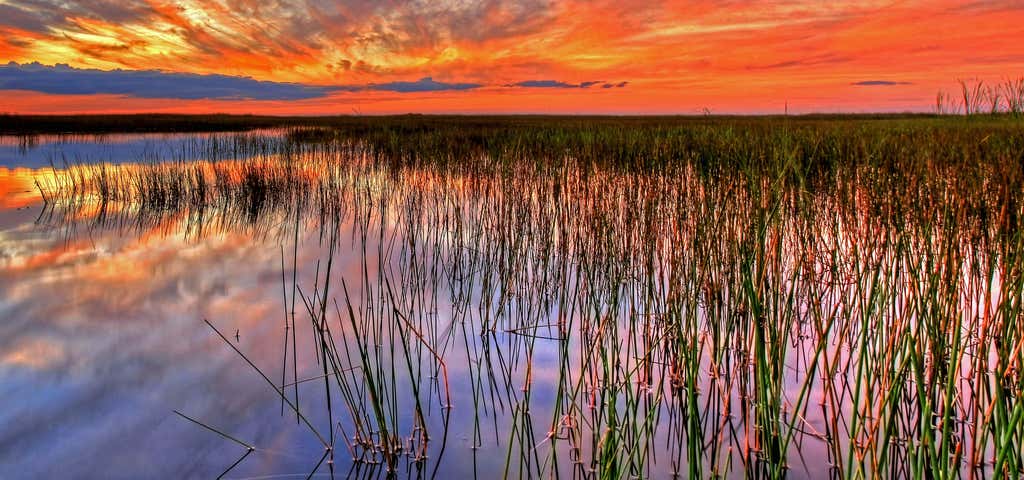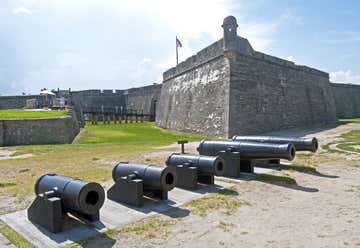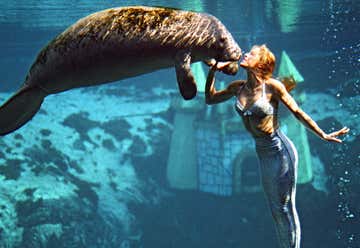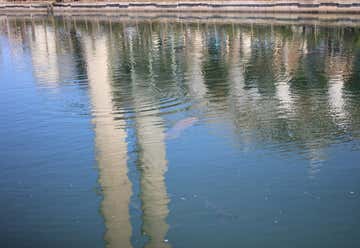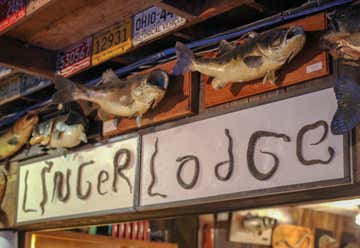Florida is so much more than sensational headlines and retirement communities. While its beaches are popular for a reason, there are plenty of other ways to have fun along—and in between—the Sunshine State’s more than 1,300 miles of coastline. Every year, residents of the third-most populous state in the U.S. also welcome spring breakers, retirees, spring trainees, and circus performers seeking refuge in Florida’s tropical climate—the only place you’ll find one in the contiguous states.
Of course, theme parks are a major draw, but there are plenty of Old Florida attractions for those who prefer “dusty” over “Disney.” Wax museums and bad taxidermy might not be as thrilling to everyone as a high-tech ride at Universal Studios, but that’s the charm of Florida: You can have both, sometimes along the same stretch of sun-bleached road—and hopefully never far from a Twistee Treat.
Castillo de San Marcos is the oldest masonry fort in the continental U.S., and the oldest structure in St. Augustine. Built in the late 1600s by the Spanish for protection and defense, the fort was used for military purposes during World War II and utilized by the Coast Guard for training exercises and ceremonies. Designated as a national monument in 1924, the 2.5-acre site is a popular tourist attraction with free, ranger-led tours, cannon firings, and weaponry demonstrations (weather permitting).
This classic Old Florida attraction—family-owned since the 1970s—features thousands of objects “representing 25 decades of history and Americana.” As the name suggests, you’ll find all 45 presidents (or their wax counterparts) here, along with their First Ladies, and replicas of Mount Rushmore, the Statue of Liberty, Uncle Sam, and the White House. Viewed by more than 50 million people from all 50 states and around the world—including two actual presidents—the one-of-a-kind, handmade White House is 50 feet long, 15 feet wide, and filled with miniatures (crafted at a 1-inch to 1-foot scale) including furniture, wallpaper, and working lights.
If the name and entrance—the open mouth of a large concrete gator—doesn’t make it obvious enough, Gatorland is a theme park and wildlife preserve in Orlando (and the self-proclaimed "Alligator Capital of the World”). Founded in 1949 and owned by the same family ever since, Gatorland is part zoo—peacocks and flamingos roam freely amongst a snake exhibit and several sizes and colors of alligators and crocodiles—and part attraction. Shows include Up-Close Encounters, an animal show-and-tell, Gator Wrestlin', and the Gator Jumparoo, which features gators jumping in the air to catch food off of a clothesline. Gatorland is also famous for its collection of leucistic alligators, which appear white due to a partial loss of pigmentation (not the same thing as an albino alligator, although they have one of those too).
Orange World is one of several huge gift shops located along Route 192 in Kissimmee, an area full of hotels, restaurants, and other tourist attractions. But before Disney or Universal Studios, the area used to be surrounded by orange groves—as far as the eye could see—and Orange World makes it easy for visitors to “take some [Florida] home” with them. Out of a dome-shaped building claimed to be the “World’s Largest Orange,” Orange World sells every variety of citrus fruit you can imagine, including unique varieties such as Sol Zest Mandarins and Honeybells grown locally in the Indian River region.
Weeki Wachee has the deepest naturally-formed spring in the U.S. and the surrounding land is a Florida state park—but since 1947 it’s also been known as the home of the famous live mermaid show. Guests watch from 16 feet below the surface, inside of a 400-seat theater embedded in the side of the spring, as “mermaids” eat, drink, and do underwater ballet routines. In the early days of the attraction, mermaids would stand by the side of the road in their bathing costumes and wave motorists into the park; today, they still perform three times a day, 365 days a year. In addition to the mermaids, admission includes a wildlife show (sometimes featuring a three-legged tortoise named Tripod) and a river boat cruise.
Tarpon Springs, located on the Gulf Coast, is a tiny town known for its sponges. Greek divers started arriving in the early 1900s, but in 1947, the sponge fields were wiped out by a red tide algae bloom. The industry rebounded in the '80s when a disease hit Mediterranean sponge fields and increased the demand for Florida sponges. Today, there's still a small, active sponge industry in Tarpon Springs, but it’s largely a tourist destination with several restaurants, bakeries, and souvenir shops. The two largest shops are The Sponge Factory and Spongeorama Sponge Factory, the latter of which (perhaps dubiously) claims to have the world's largest collection of sponges. Both shops show a different short, educational sponge diving movie, but make sure you pay attention—the movies are different but both contain “secret” discount codes so you can stock up on the town’s signature export.
In 1986, manatees were spotted in large numbers outside of the Big Bend Power Station’s discharge canal in Apollo Beach. The saltwater—clean and warm after being discharged back to the bay—was a draw for the gentle mammals, who can be seen when the Tampa Bay drops below 68 degrees. Today the Manatee Viewing Center is a state and federally designated manatee sanctuary that provides protection for the manatees as well as boardwalks, viewing platforms, and a gift shop for visitors.
The Linger Lodge, a restaurant and campground located in Bradenton, Florida, more than lives up to its claim to be “Old Florida at its Best.” Started in 1945 as a campground, the Lodge is full of taxidermy, mostly from roadkill. Some pieces are good, some pieces are bad, and some pieces are so bad that they're great. It's worth visiting the Linger Lodge for the menu alone: It features an entire page devoted to the roadkill offerings—which may or may not be a joke—including "Chunk of Skunk," "Swirl of Squirrel," "Center Line Bovine," "The Chicken (that didn't cross the road)," and "Poodles 'n Noodles." The Lodge is very proud of its rare and unusual Florida Animals taxidermy collection, with fantastical creations such as a Jackalope, Alaskan Fur Fish, and a Walking Catfish.
John Ringling—of Ringling Brothers fame—wisely invested his profits from The Greatest Show on Earth, making him one of the richest men in America in the 1920s. The Ringling in Sarasota comprises several different properties and museums, including Ringling’s house, Ca’ d’Zan; a huge art museum; gardens; and the circus museum, which houses The World's Largest Miniature Circus. The 3,800-square-foot Howard Bros. Circus model is “a 44,000-piece re-creation of the Ringling Bros. and Barnum & Bailey Circus combined shows from 1919-1938.” The model is the life's work of one man—Howard Tibbals—and is crafted to an exact 3/4-inch to 1-foot scale. Tibbals has been working on the model for more than 50 years, and it includes everything you'd expect to see at a circus and more, including billboards and trains; trapeze artists and barbers; general stores and ice cream stands; elephants, zebras, and tigers; clowns and ticket booths—and of course a big top.
The largest subtropical wilderness in the U.S. is an animal lover’s paradise. You can’t take a hike without seeing birds, animal tracks, turtles, pigs, manatees, deer, otters, or another type of critter. You’re basically guaranteed a croc or gator sighting, and the very lucky might encounter a rare Florida panther. There are only a few boardwalk-lined trails here, so make the most of the drive into the park, and seriously consider an airboat tour. You’ll get to go deeper into the landscape than the trails can take you, and truly experience the underbelly of the swamp.
